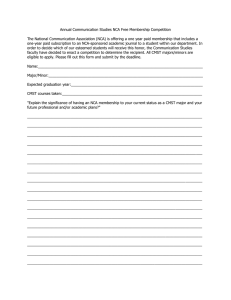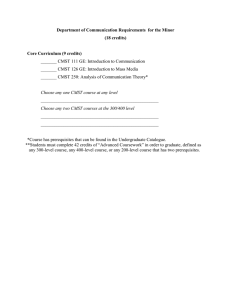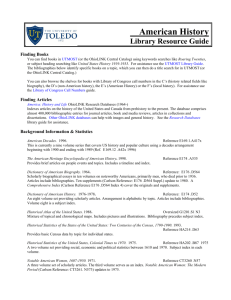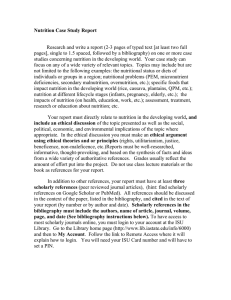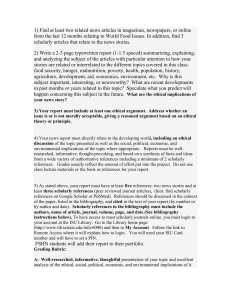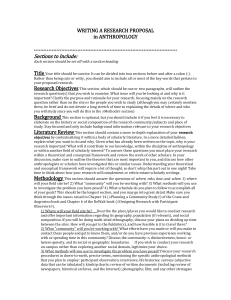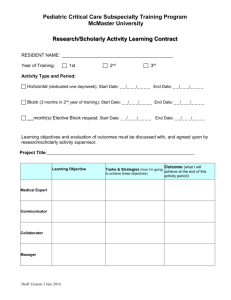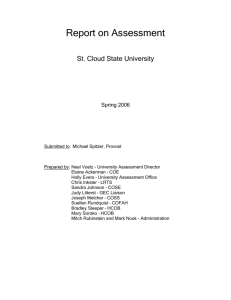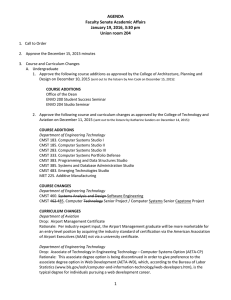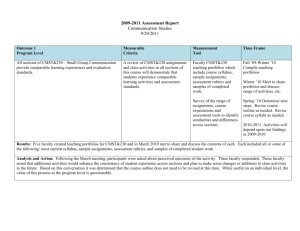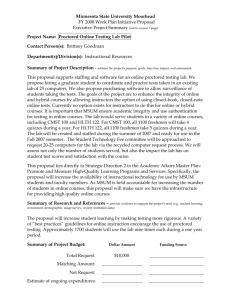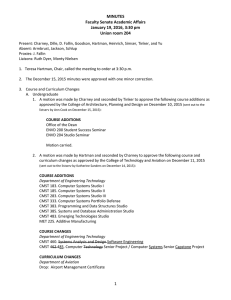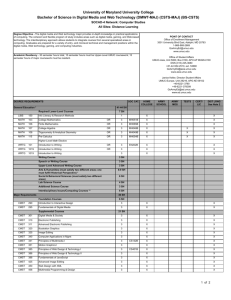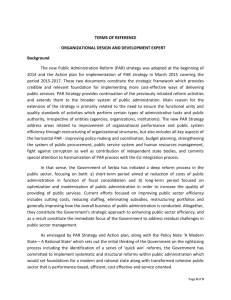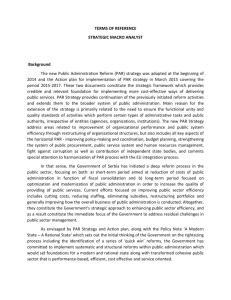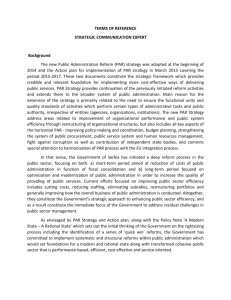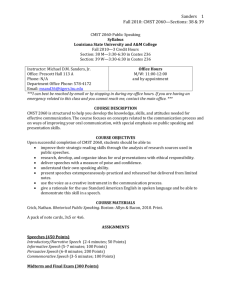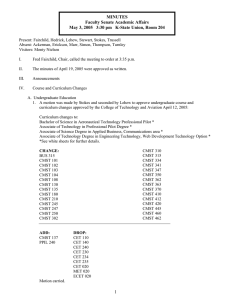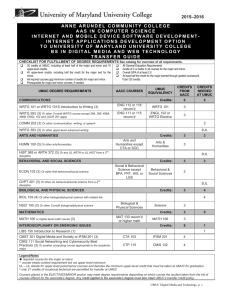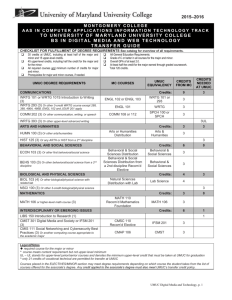CMST 301 Historical Moment Paper
advertisement
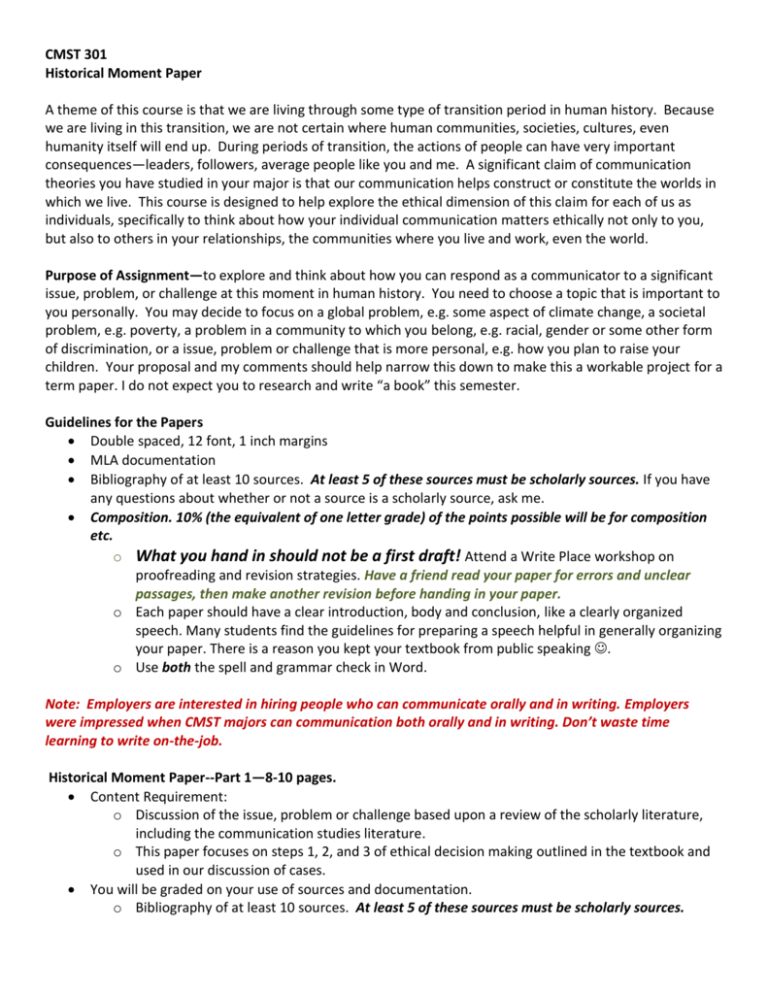
CMST 301 Historical Moment Paper A theme of this course is that we are living through some type of transition period in human history. Because we are living in this transition, we are not certain where human communities, societies, cultures, even humanity itself will end up. During periods of transition, the actions of people can have very important consequences—leaders, followers, average people like you and me. A significant claim of communication theories you have studied in your major is that our communication helps construct or constitute the worlds in which we live. This course is designed to help explore the ethical dimension of this claim for each of us as individuals, specifically to think about how your individual communication matters ethically not only to you, but also to others in your relationships, the communities where you live and work, even the world. Purpose of Assignment—to explore and think about how you can respond as a communicator to a significant issue, problem, or challenge at this moment in human history. You need to choose a topic that is important to you personally. You may decide to focus on a global problem, e.g. some aspect of climate change, a societal problem, e.g. poverty, a problem in a community to which you belong, e.g. racial, gender or some other form of discrimination, or a issue, problem or challenge that is more personal, e.g. how you plan to raise your children. Your proposal and my comments should help narrow this down to make this a workable project for a term paper. I do not expect you to research and write “a book” this semester. Guidelines for the Papers Double spaced, 12 font, 1 inch margins MLA documentation Bibliography of at least 10 sources. At least 5 of these sources must be scholarly sources. If you have any questions about whether or not a source is a scholarly source, ask me. Composition. 10% (the equivalent of one letter grade) of the points possible will be for composition etc. o What you hand in should not be a first draft! Attend a Write Place workshop on proofreading and revision strategies. Have a friend read your paper for errors and unclear passages, then make another revision before handing in your paper. o Each paper should have a clear introduction, body and conclusion, like a clearly organized speech. Many students find the guidelines for preparing a speech helpful in generally organizing your paper. There is a reason you kept your textbook from public speaking . o Use both the spell and grammar check in Word. Note: Employers are interested in hiring people who can communicate orally and in writing. Employers were impressed when CMST majors can communication both orally and in writing. Don’t waste time learning to write on-the-job. Historical Moment Paper--Part 1—8-10 pages. Content Requirement: o Discussion of the issue, problem or challenge based upon a review of the scholarly literature, including the communication studies literature. o This paper focuses on steps 1, 2, and 3 of ethical decision making outlined in the textbook and used in our discussion of cases. You will be graded on your use of sources and documentation. o Bibliography of at least 10 sources. At least 5 of these sources must be scholarly sources. Historical Moment Paper--Part 2—8-10 pages. Total Historical Moment Paper--18-20 pages. This paper builds upon your work in Part 1. Content Requirements in addition to Part I: o Analysis of communication issues. This is where you use what you have learned in your other CMST courses. Be sure to cite textbooks or readings from your classes. Do further reading. Show what you have learned as a CMST major! o Analysis of communication ethics issue(s). Use what you have learned in this course. Cite sources. Do further reading. o Discuss how this issue/challenge/problem is connected to you. At some point, you need to discuss how your communication matters/would matter concerning this topic. Depending on the issue and the nature of your relationship with it, this problem, or challenge, this section could appear anywhere in the paper, even in the introduction. o Explain how you intend to be an ethical communicator responding to this issue, by applying the values/ principles of your personal ethical standard. Remember the 3 recurring questions of communication ethics—Do I communication? If I speak what do I say? How should I communicate? o Identify and discuss communication practices or strategies that you intend to use, given your present understanding of this communication issue/problem/challenge. o Discuss how you make your plan happen.
